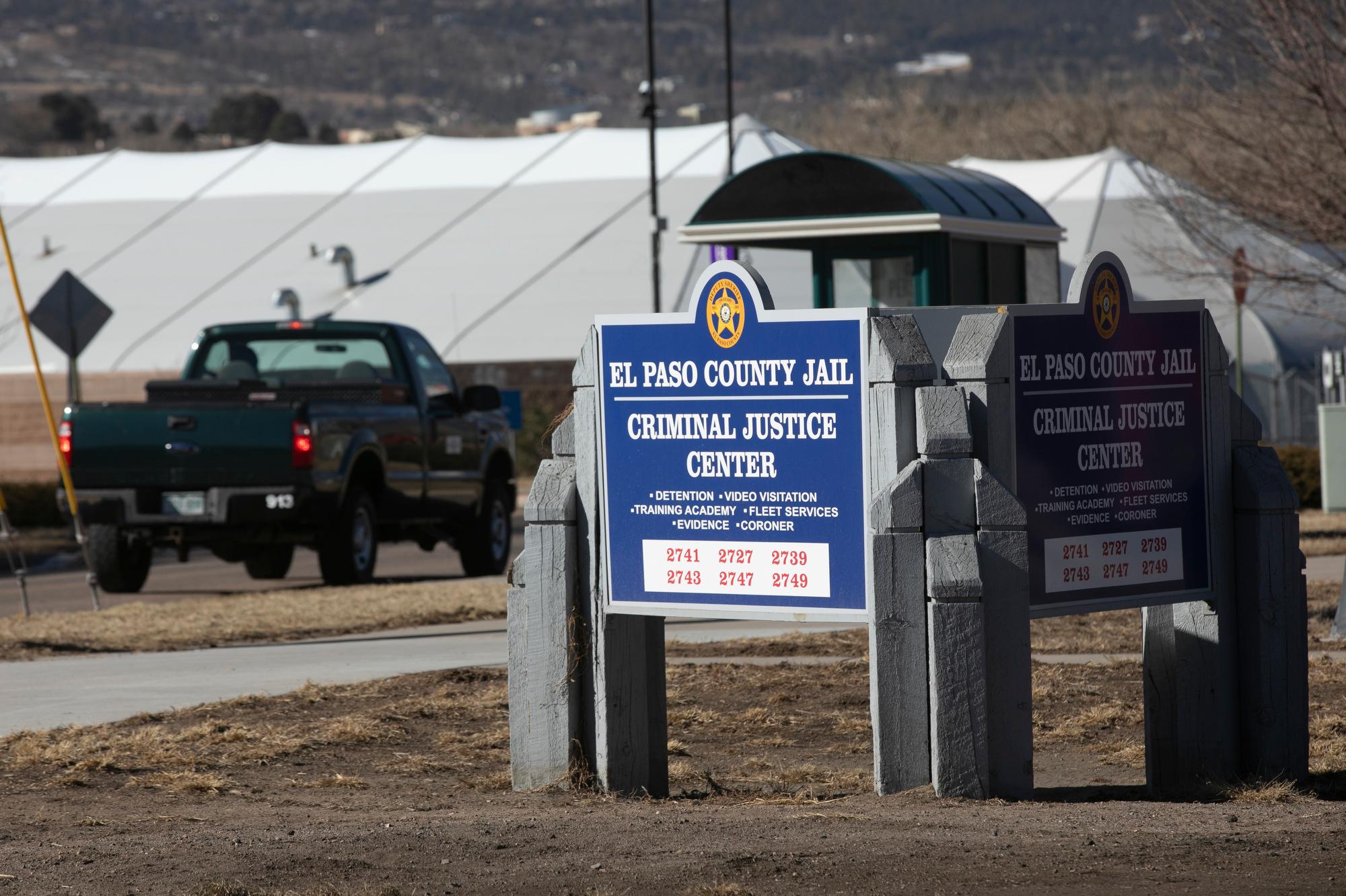
A federal appeals court panel ruled Wednesday that a transgender woman should be given the opportunity to argue in court that her rights were violated when she was housed with male inmates and denied commissary items available to women in the El Paso County Jail.
The ruling reversed a district court decision dismissing claims made by Darlene Griffith, who has lived as a transgender woman for 20 years and filed suit over her treatment during pre-trial confinement at the El Paso County Jail in 2020.
If the decision stands on review by either the full 10th Circuit Court or the U.S. Supreme Court, Griffith would then go back to U.S. District Court in Colorado for trial on her claims of discrimination and mistreatment.
The decision found that Griffith had presented enough evidence to allow a claim to proceed that she was treated differently than cisgender women, who are housed together in the jail. It dismissed the notion that discriminating against Griffith on the basis of genitalia would not be considered sex discrimination under current law.
“Of course, if two people cannot be similarly situated because they have a different biological sex, then no sex discrimination claim would ever succeed,” the majority of the three-judge panel wrote. “And Ms. Griffith has alleged the jail treats her (and other transgender women) differently than cisgender women. Even the dissent seems to recognize the jail discriminates against her on the basis of sex.”
When Griffith was booked into the jail in 2020, a deputy classified Griffith as a man and “placed her into an all-male unit despite knowing that Griffith was a transgender woman,” the ruling said.
Griffith alleged in a lawsuit that she suffered various indignities – some more serious than others, according to the ruling.
She was not permitted to buy lipstick or women’s underwear through the commissary, though a deputy did give her a sports bra. She told authorities she was sexually assaulted by a fellow inmate in the male housing unit, and that the man groped her. She was frequently searched by male deputies without any females present. One deputy told her to “step back, bend over and spread her sexy cheeks.”
The circuit judges remanded Griffith’s Equal Protection Clause claim from the 14th Amendment back to the district court, as well as a constitutional violation from the deputy’s strip search of her.
“We do not speculate about the ultimate outcome of Ms. Griffith’s Equal Protection claim,” the opinion, by Judge Veronica Sophia Rossman, said. “At this early stage of the litigation, we must accept Ms. Griffiths’s allegations as true and draw all reasonable inferences in her favor … We conclude Ms. Griffith has stated a plausible Equal Protection claim.”
Rossman was appointed to the court by President Joe Biden. Judge David Ebel, who was appointed by President Ronald Reagan and is now on senior status, joined in the opinion, acknowledging that the case presents difficult questions.
“This case presents some novel and difficult equal protection issues which require us ultimately to balance the parties’ conflicting interests,” Ebel wrote in a concurring opinion. “As is often the case, the balancing decisions will be affected by how the parties’ interests are defined and what level of scrutiny is applied to the government’s policy being challenged.”
Judge Timothy Tymkovich dissented, saying he disagreed with the Equal Protection Clause claim. Tymkovich, who was appointed to the bench by President George W. Bush and considered for the U.S. Supreme Court by Donald Trump in his first term, wrote that the U.S. Supreme Court held “when a prison regulation impinges on inmates’ constitutional rights, the regulation is valid if it is reasonably related to legitimate penological interests.
He also dismissed her claim that the deputy violated her constitutional rights given she “failed to identify a law clearly establishing that abusive language can transform an otherwise constitutional search into an unconstitutional one.”
Andy McNulty, a lawyer representing Griffith, called the decision hopeful – particularly given the hostility directed at transgender Americans in the early days of Trump’s second term.
“It's a huge win for trans rights in America, especially at a time where they're constantly under attack,” McNulty said. “It protects some of the most vulnerable trans folks, which are folks who are incarcerated in jail and prison. They can't protect themselves, so they rely on the state to protect them. And if the state's allowed to just put them in harm’s way simply because of their gender identity, they're in a real vulnerable state.”
Griffith is now living in the Colorado Springs area. McNulty said she “believes strongly in the right of trans folks to exist and trans folks to be protected by the state, just like every other person in this country should be,” he said.
A spokeswoman from the El Paso County Sheriff’s Office said they were “aware” of the ruling “and thankful that the 10th Circuit affirmed the dismissal of several of Ms. Griffith’s claims,” they said in a written statement. “However, the Sheriff’s Office will not comment further on this matter at this time because litigation remains pending.”
Colorado’s Department of Corrections settled a lawsuit last year on the rights of transgender inmates, providing for transgender people sentenced to a state prison to either go to an integration unit at the Sterling Correctional Facility or the Denver Women’s Correctional Facility. In that settlement agreement, the state also agreed that only female corrections officers will conduct strip searches for transgender women.
Within federal prisons, Trump has issued an executive order that mandates transgender inmates move to birth-assigned gender housing areas. He ordered that federal agencies stop recognizing transgender people. That order has sown confusion across the Bureau of Prisons, according to reporting by the Marshall Project
El Paso County officials can appeal to the U.S. Supreme Court or the full bank of judges in the 10th Circuit Court of Appeals, which is based in Colorado.









